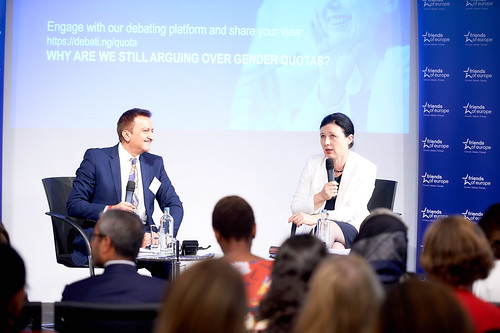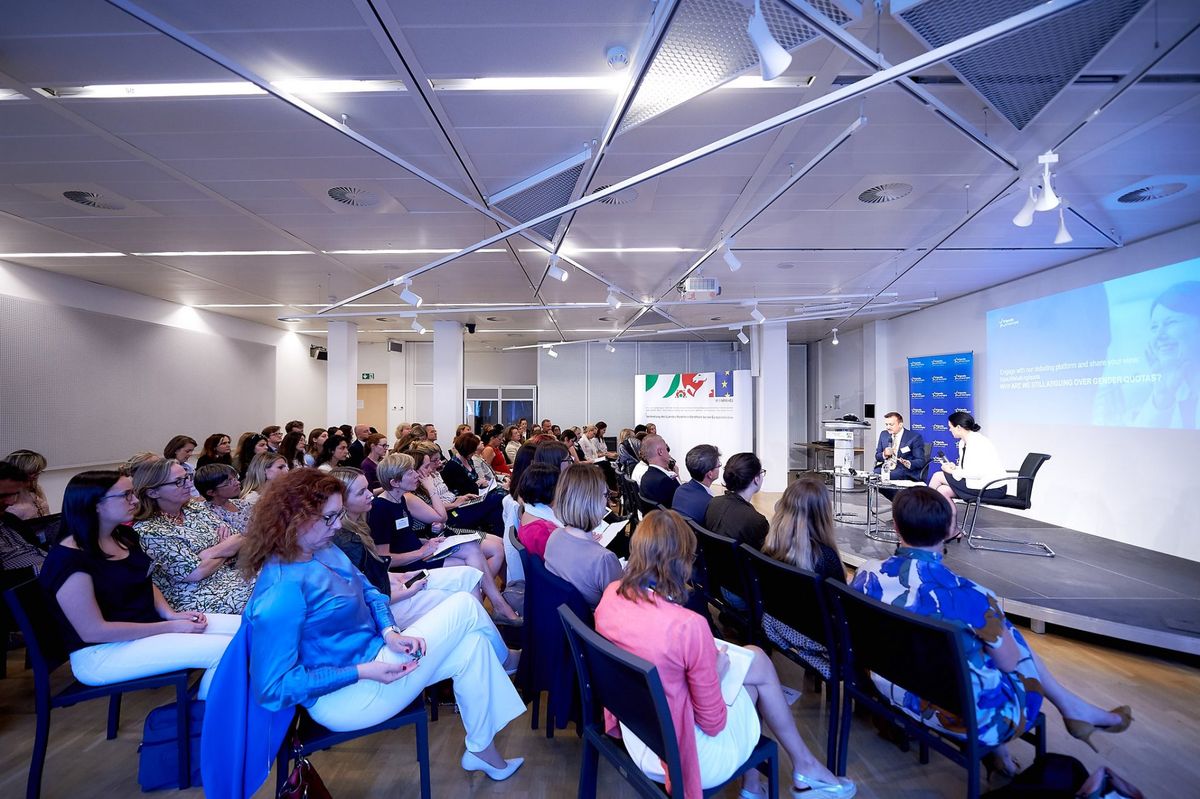
Summary
The strong economic arguments for addressing Europe’s gender imbalances will be a powerful tool in countering Europe’s stagnating progress on gender equality, argued Commissioner Vera Jourová at a Friends of Europe debate on 26 June.
“When we put the label of gender, it doesn’t fly. To say that something is unfair, forget it. To say that these problems are women’s problem, you condemn it to having no resolution.”
Instead, it was only by highlighting the huge economic losses society was suffering through gender inequalities that she could focus minds and fight the ‘counter revolution’ which had been appearing in some member states.
Not only were EU economies losing between 2-5% of their GDP through the under promotion of women, but research has proven that “companies which had diversity in boardrooms survived the financial crisis better.”
She didn’t spare her Commissioner colleagues from this analysis either, emphasising that the relatively large number of women in the Junker Commission had made the EU better at responding to the myriad of issues it had faced since 2014. Whether dealing with the crisis in Ukraine, Brexit or migration across the Mediterranean, her personal experience suggested that a gender-mixed structure produced the most measured responses.
She had a plan to tackle those who failed to take their equal pay obligation seriously, “future legislation should introduce obligatory transparency about pay policies in companies,” the Commissioner said. “Secondly we must introduce sanctions, legislation without sanctions is a dog without teeth.”
On the upcoming European elections, the Commissioner stated that only the potential for electoral gains would shift the attitudes of political parties and ensure a more diverse party list. She did however caution that, although she personally wished that more women voted for female candidates, an overt campaign to promote this may be counterproductive in some member states.
However, as the debate drew to a close, the Commissioner took the opportunity to make one final call to arms for women: “Let’s get elected because we are better, we are brilliant, we see beyond the horizon and we can change the world for the better”.
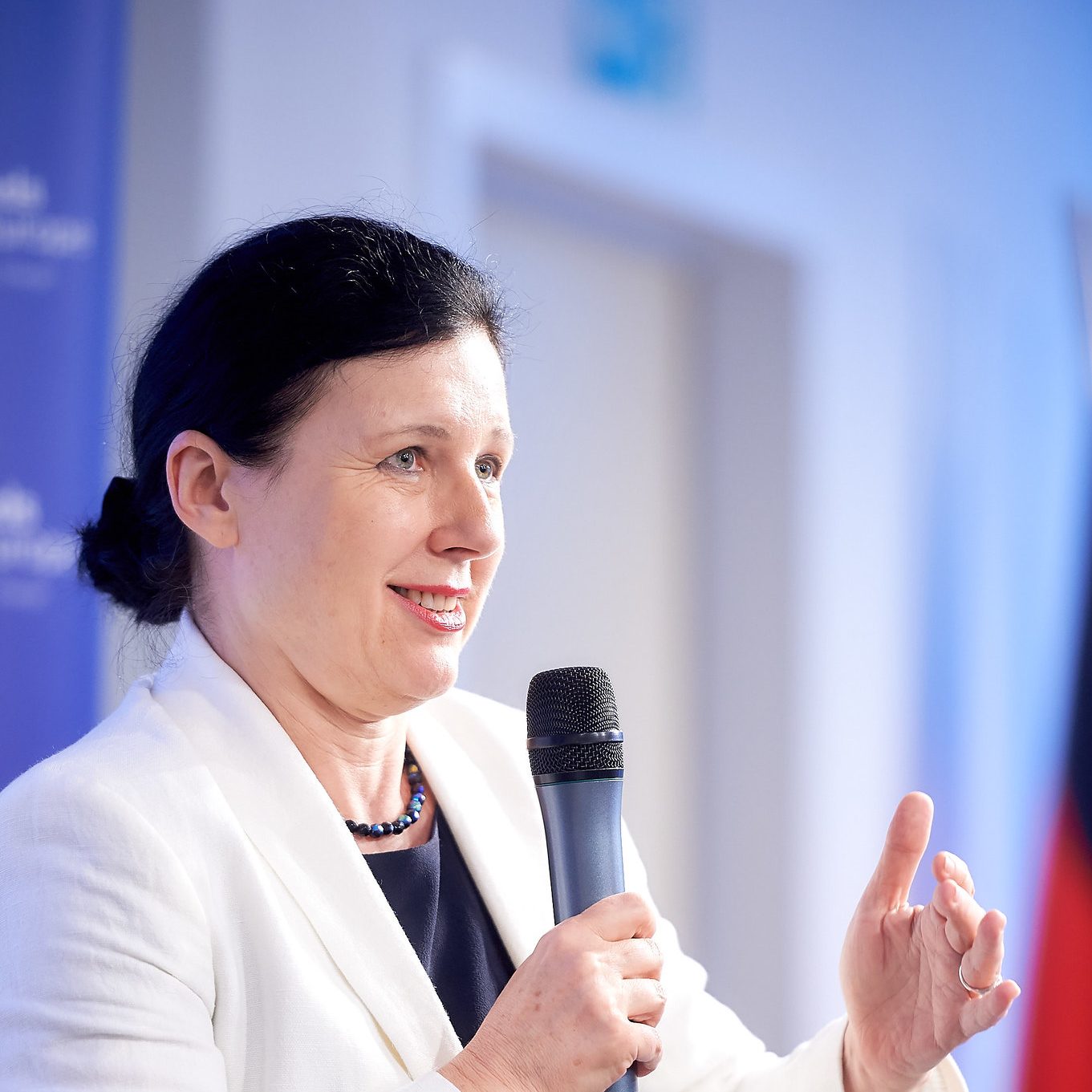
Event recording
Conversation with Věra JourováAbout
Originally due to take place on Monday 11 June, this event is now taking place on Tuesday 26 June
Join us for a ‘Conversation with’ Věra Jourová, European Commissioner for Justice, Consumers and Gender Equality, we will discuss her areas of responsibility to explore how the highs and lows of this wide and important brief affect the everyday lives of European citizens in terms of equality and rights.
This event – What’s the scorecard on gender equality? – is part of our ’Conversation with’ series. This year we’re taking the opportunity to audit EU commissioners and give them the opportunity to engage in a candid conversation about their mandate and importantly the unfinished work which should be a priority for the next Commission.
Related content:
- Towards gender equality, at a snail’s pace by Virginija Langbakk
Schedule
As we near the end of the Commission term: What’s the scorecard on gender equality?
The EU has set itself out to be a watchdog for gender equality, yet only 9 out of 28 EU Commissioners and 37% of members of the current European Parliament are women. The glass ceiling, though it has risen over the past decades, has not shattered. The gender-pay gap and continued male dominance in decision-making positions show that efforts made haven’t been enough. Why do some still consider ‘feminism’ a bad word?
- How do we break the glass ceiling in Europe and ensure gender parity at leadership level?
- How would an increased level of women in leadership positions affect policies?
- How do we ensure more women participate as voters, candidates and political party leaders in the upcoming European elections?
Speakers
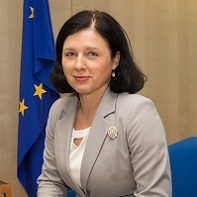
Vice-President of the European Commission
Věra currently heads EU policy on justice, consumer rights and gender equality in the Juncker Commission. She is nominated as Vice-President responsible for values and transparency and in the upcoming Commission will deal with democracy, rule of law, disinformation, media pluralism and institutional reform of lead candidate system. Previously, she was the Czech Minister for Regional Development and Member of the Chamber of Deputies from 2013 to 2014. In 2019, Time magazine ranked Věra as one of the 100 most influential people of the year, due to her outstanding work on the development of the General Data Protection Regulation (GDPR), new privacy rights and her work with tech platforms to fight illegal hate speech online.
Activities
A European agenda for space: resilience, security and sovereignty
Past event In person

- Area of Expertise
- Digital & Data Governance
Prepare, Provide, Pioneer: digitalisation as a motor for Europe’s success…
Next event In person & livestreamed
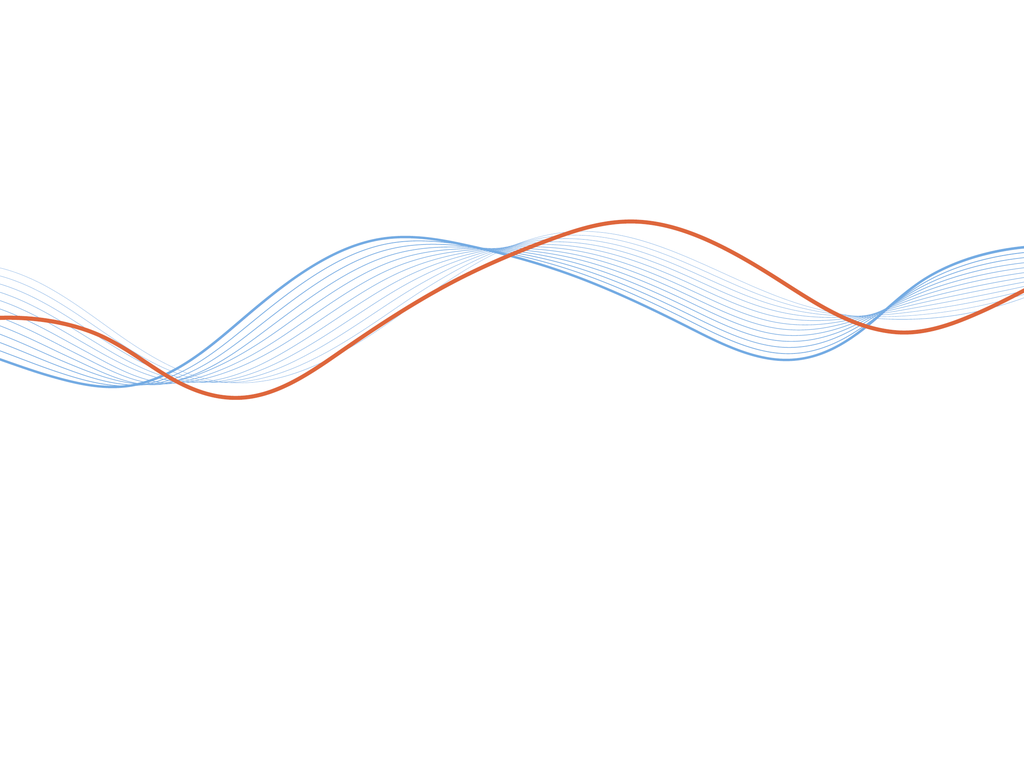
- Area of Expertise
- Digital & Data Governance
From orbit to impact: charting Europe’s course in a changing global…
Past event Online

- Area of Expertise
- Digital & Data Governance
Embracing digital government for Europe’s citizens: how do we maximise…
Past event In person

- Area of Expertise
- Digital & Data Governance
The digital battlefield: EU-China cybersecurity diplomacy in the 21st…
- Category
- #CriticalThinking
- Author
- By Dr Cristina Vanberghen
The digital battlefield: EU-China cybersecurity diplomacy in the 21st…
- Category
- #CriticalThinking
- Author
- By Dr Cristina Vanberghen
Time for ESA to chart its own course and reduce NASA dependency
- Category
- #CriticalThinking
- Author
- By Susmita Mohanty
Introducing a new method to assess the productivity of human-AI…
- Category
- #CriticalThinking
- Author
- By Smita Samanta & Emmanuel Benhamou

- Area of Expertise
- Digital & Data Governance

- Area of Expertise
- Digital & Data Governance
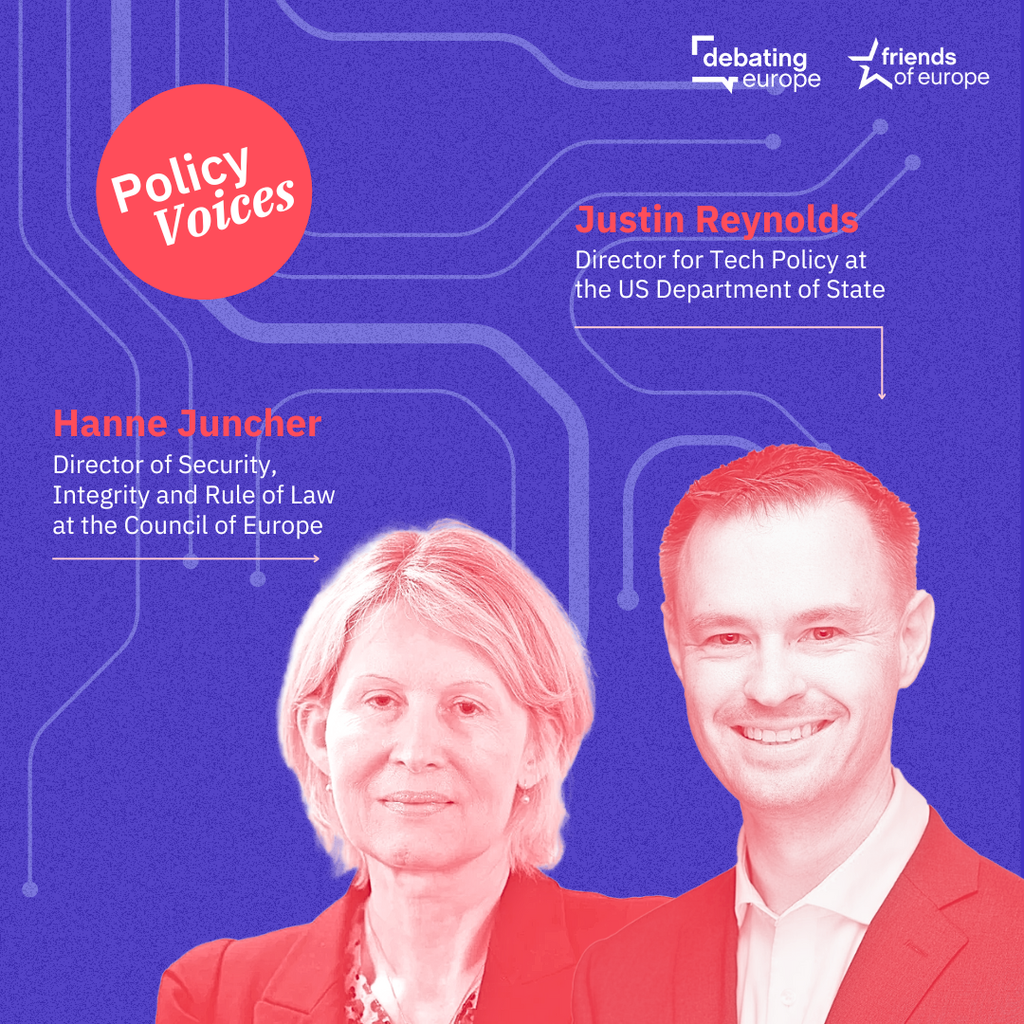
- Area of Expertise
- Democracy

- Area of Expertise
- Digital & Data Governance
Continue
the debate on
- Debating Europe
